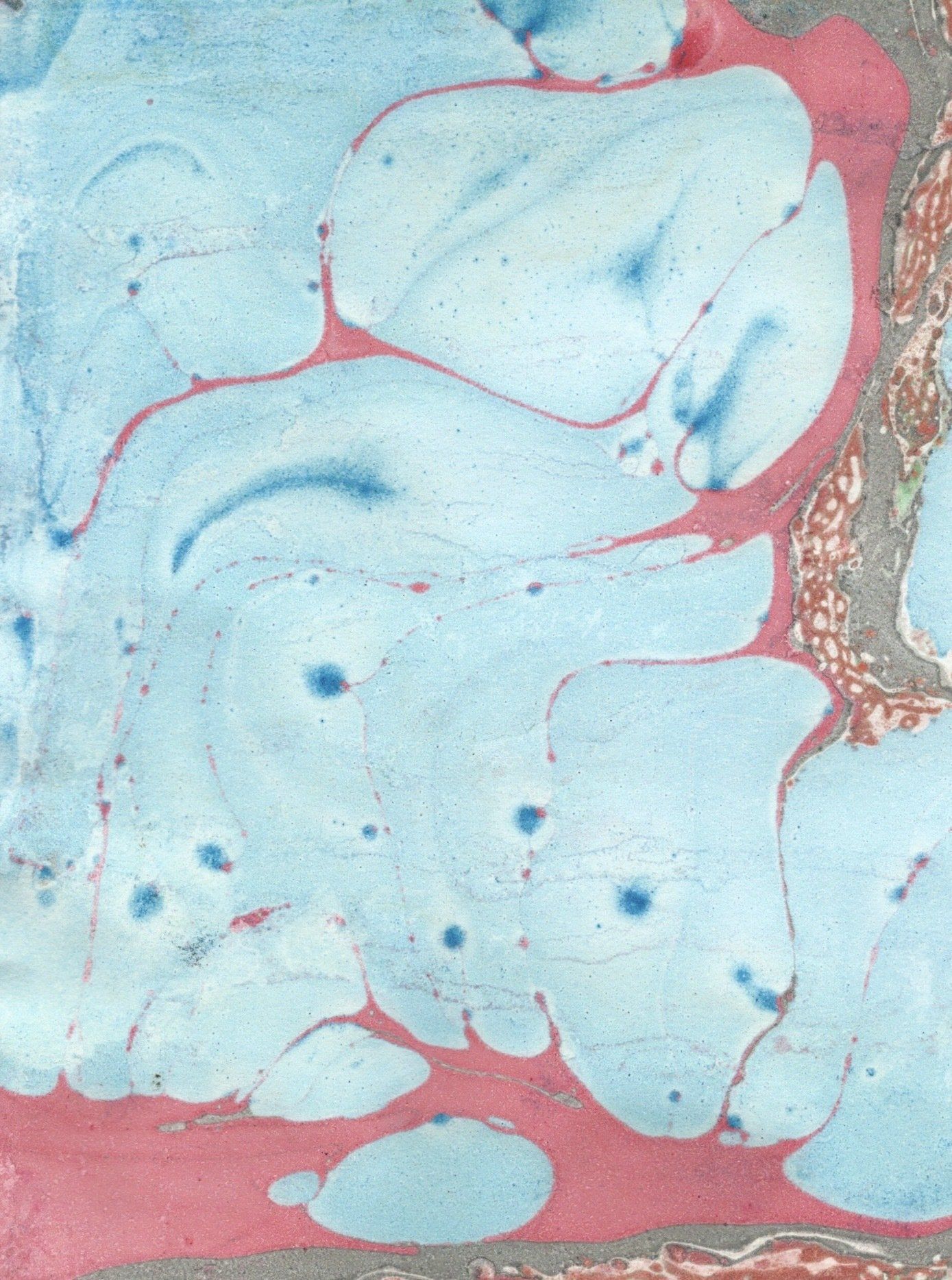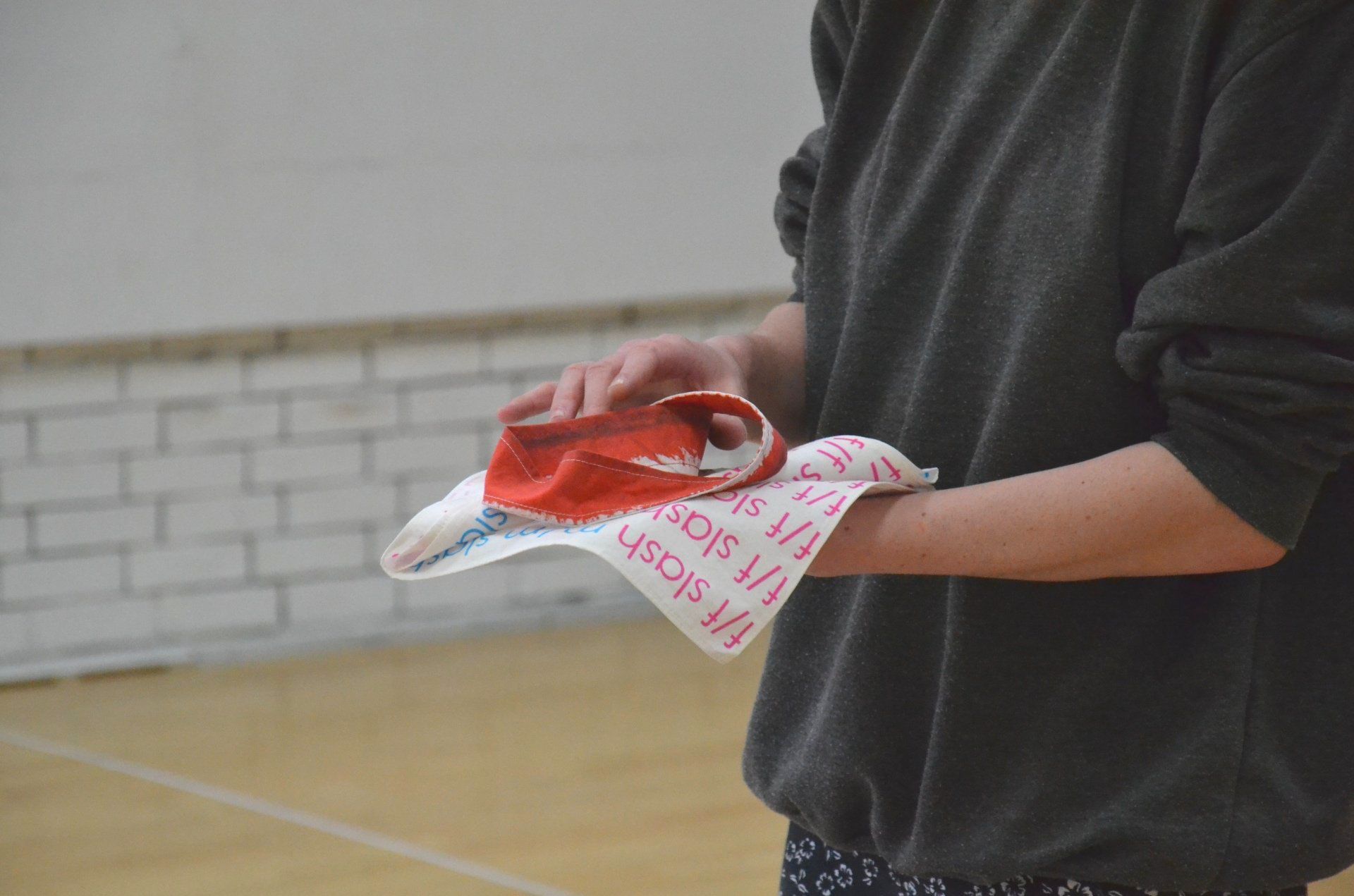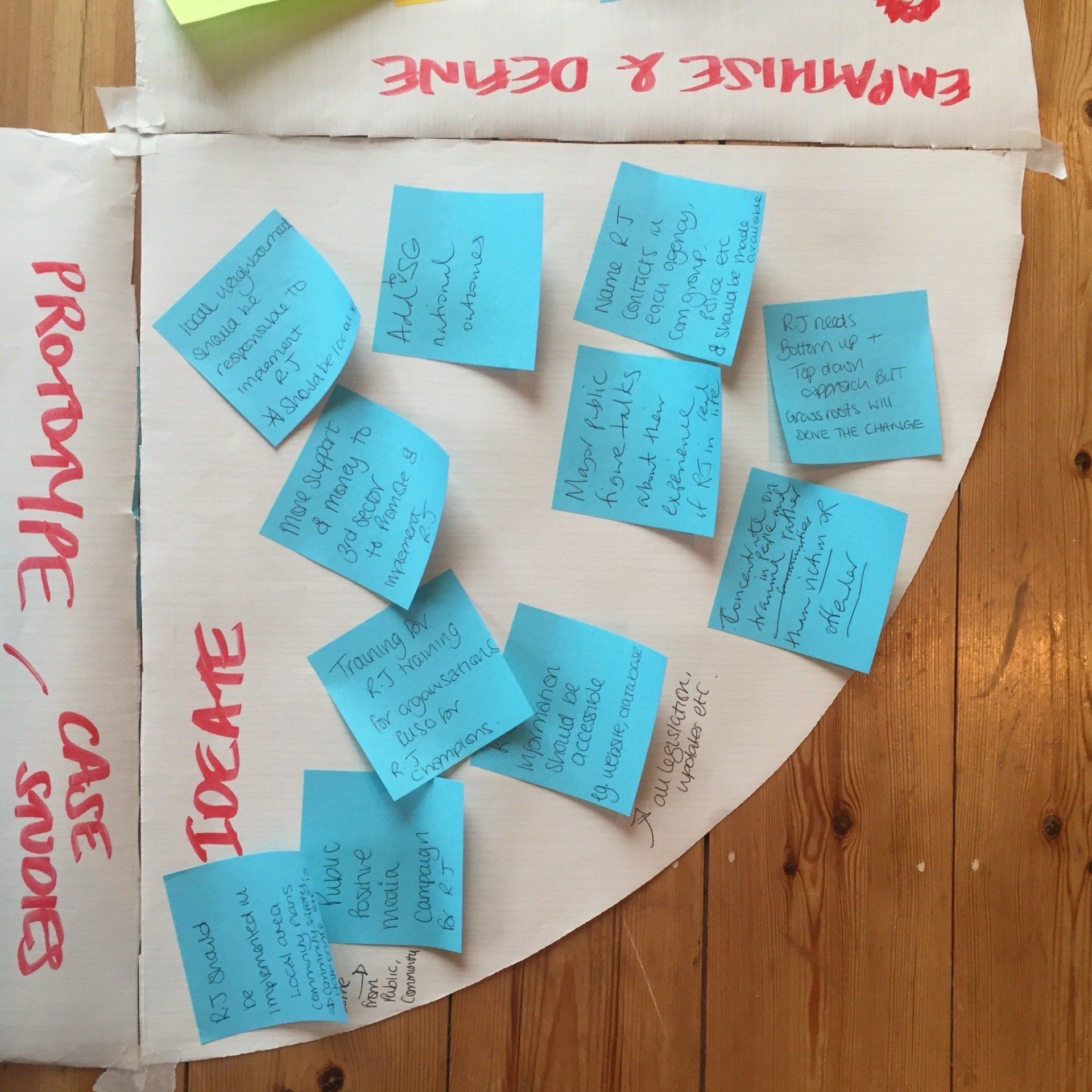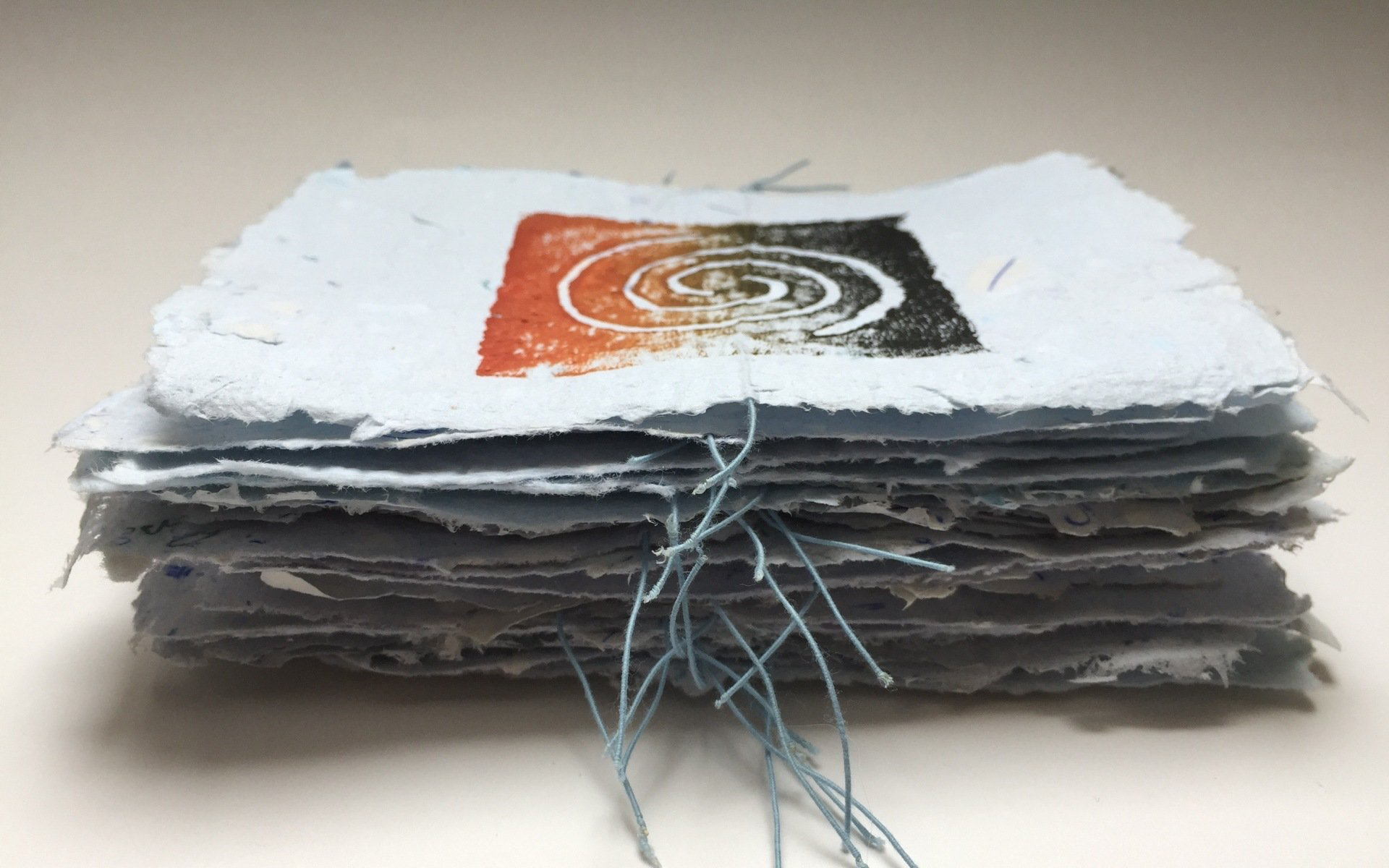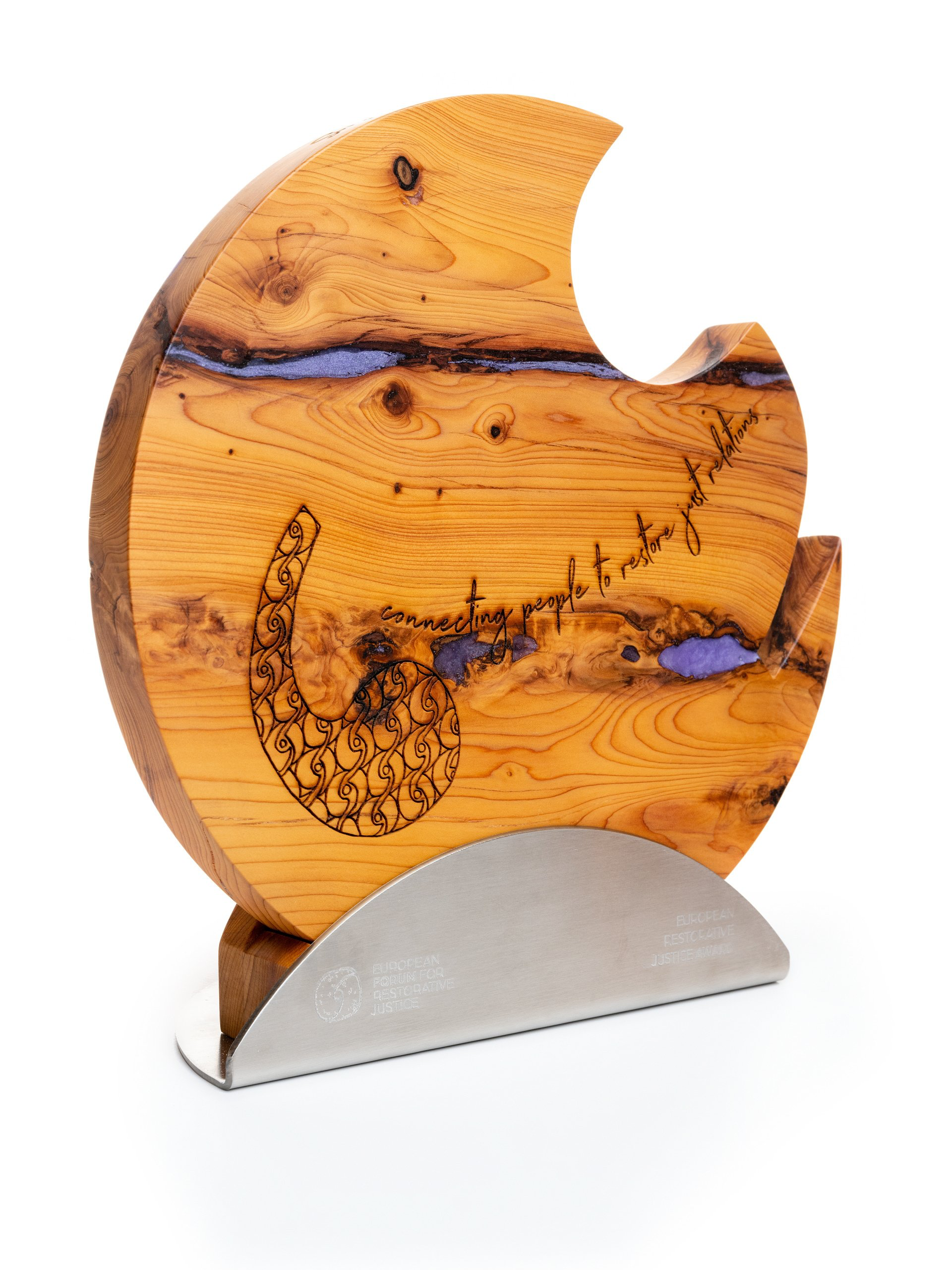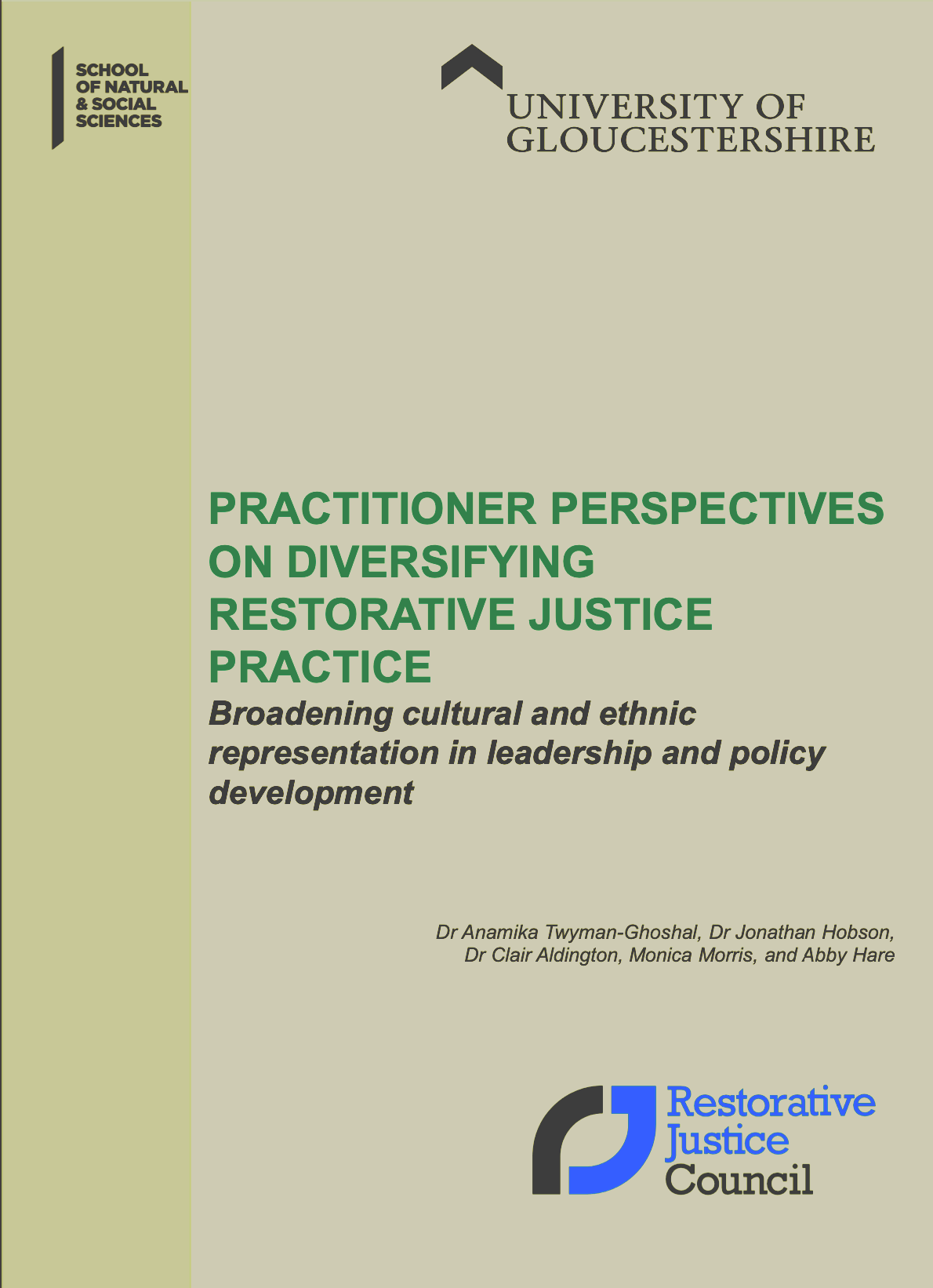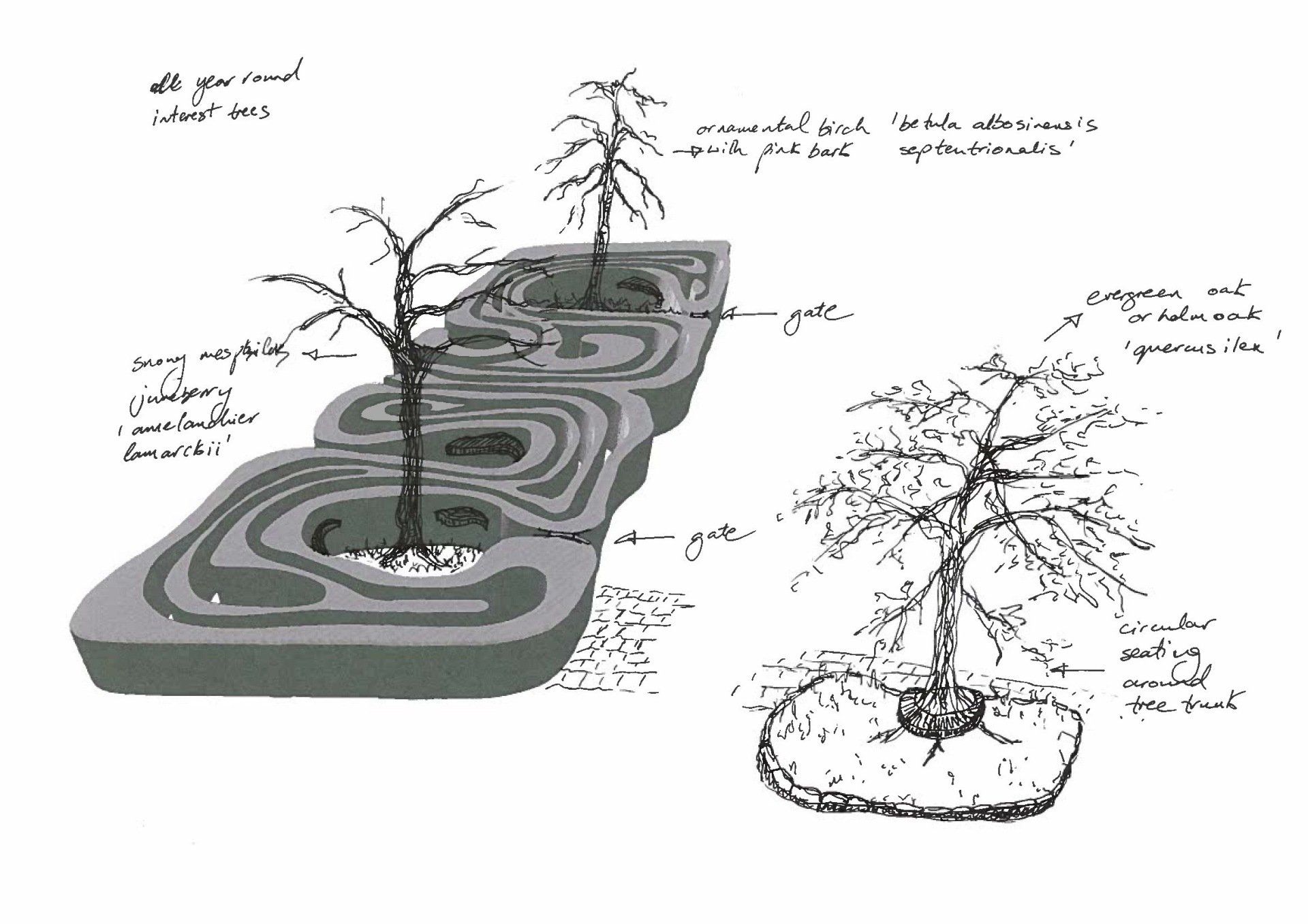Case studies
“Innovative and inspiring work about the intersection between making, gifting and restorative justice”
- Emanuela Biffi, European Forum for Restorative Justice
Drawing a line; The meaning of making, gifting and solidarity in restorative justice processes
"Clair gave a wonderfully rich, confident and clear defence of her thesis. She drew on her vast body of research work effortlessly, demonstrating above and beyond the capability of a doctoral candidate"
- Dr. Steve Kirkwood, The University of Edinburgh and Prof. Jon Rogers, Northumbria University
Doctoral thesis - a qualitative practice-based enquiry which finds that within the context of restorative justice:
- making, gifting and solidarity share the same characteristics;
- making and gifting are innately about forming solidarities with the other;
- the gift offers a tangibility to the restorative justice process;
- the gift becomes a symbol of solidarity between the harmed and the harmer.
These findings are important as the formation of solidarities and symbols are linked with the potential for change.
Turnings workshop
"It just reminded me of how nice it is, in a way, to get into your body and try and process something maybe traumatic that you’ve seen or witnessed, and just like going through the sensations, and also on both sides, embodying that - it’s just very powerful, and something we don’t normally do"
- Dancer, Turnings workshop
Research workshop - with dancers as part of my doctoral studies. The dancers had a basic understanding of restorative justice and investigated the role of movement and gifting as forms of non-verbal language in restorative justice encounters.
Furoshiki wrapping cloths
Thinking through making - a body of work handmade by me as part of thinking through making my doctoral research.
The co-creation of a set of wrapping cloths in the style of Japanese Furoshiki furthered my investigations into solidarity and gifting in restorative justice.
Designing and implementing RJ in Scotland workshop
Co-facilitator of a design thinking workshop - with Dr. Ian Marder of Maynooth University and The University of Edinburgh on the design and implementation of RJ in Scotland. The outcomes contributed to the publication Designing and Implementing RJ in Scotland (Hamad, Shapland, Kirkwood, Bisset, & Edginton, 2020).
The Encounter of the Encounters
"Colours seem opposite but they merge towards a contamination that can be reached without a confrontation or clash by following the progression of the spiral"
"Slow and difficult process leading to a new shade of colour"
- Participants, the Encounter of the Encounters, on receiving the gift of artwork in the image
Co-facilitator of workshops and dialogues - with the international Encounter of the Encounters restorative circle group. All participants are involved in restorative dialogues in the Basque Country/ Spain, Israel, Palestine, Italy, and Northern Ireland. Participants share the harmful effects of political violence and the commitment to prevent its reoccurrence - as those who resorted to violence and those who were harmed by it.
European Restorative Justice award
"I loved to work with Clair on the concept and making of the European Restorative Justice Award becuase of her passionate, co-operative, generous and humble working style.
She gathered everyone's ideas in creative drawings and managed different local craft makers to produce a beautifully designed talking piece, full of meanings hidden in its shape, materials, colours and hard work of many different minds and hands"
- Emanuela Biffi, European Forum for Restorative Justice
Design commision - with the European Forum for Restorative Justice to design and project manage the fabrication of the European Restorative Justice Award. The award was launched as part of the Forum's 10th anniversary celebrations -it recognises and celebrates outstanding contributions to the development of restorative justice within Europe.
Peace award
Design commission - with the Basque Institute for Criminology (Instituto Vasco de Criminología-Kriminologiaren Euskal Institutua - IVAC-KREI) to design and oversee the fabrication of the IVAC KREI Premio Javier Gómez Elósegui Saria peace award.
Practitioner perspectives on diversifying Restorative Justice practice
Research assistant - with the University of Gloucestershire in partnership with the Restorative Justice Council, UK. Co-facilitator and lead analyst with an investigation into practitioner perspectives on diversity within restorative justice practice. The research involved online group discussions and one blended event. Data was analysed thematically. This resulted in a published report to the Restorative Justice Council.
(Re)design of consent forms
Participant consent forms - this was the consent and participant information form I designed for my doctoral research participants. It was designed to be exchanged between me and research participants as I see consent as two-way - the participant is consenting to take part in the research and the researcher consenting to work within a set of values. I believe the consent form should be a thing of beauty and interest as well as being fully accessible and inclusive.
Public spaces for dialogue
Concept design - a labyrinth design as a representation of the restorative dialogue. I re-imagined it as a community installation using ‘crime prevention through environmental design’ (CPTED) principles to create safe, imaginative public spaces as part of crime prevention. One of CPTED's design principles is to create maze like entrances to deter offending behaviour. Instead I wanted to create spaces that encourage dialogue between communities. I imagined this through internal seating within the labyrinth alongside external seating around a tree - both private and public spaces for interaction.
These are a few of the organisations I have worked with
- European Forum for Restorative Justice, Brussels, Belgium
- Space2face - Shetland's Restorative Justice Service, Shetland Islands, Scotland
- The University of Edinburgh, Scotland
- Universidad del País Vasco/Euskal Herriko Unibertsitatea (University of the Basque Country), San Sebastián, Spain
- Università Cattolica del Sacro Cuore (Catholic University of the Sacred Heart), Milan, Italy
- University of Gloucestershire at Cheltenham and Gloucester, England
- International Institute for Restorative Practices, USA
Get in touch...
Contact Us
Thank you for contacting me.
I will get back to you as soon as possible.
Please try again later.


